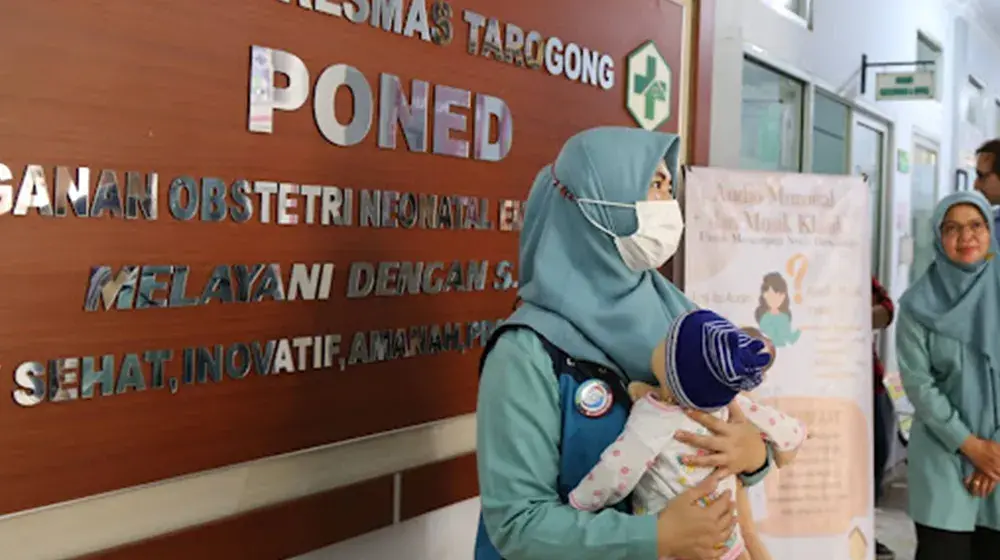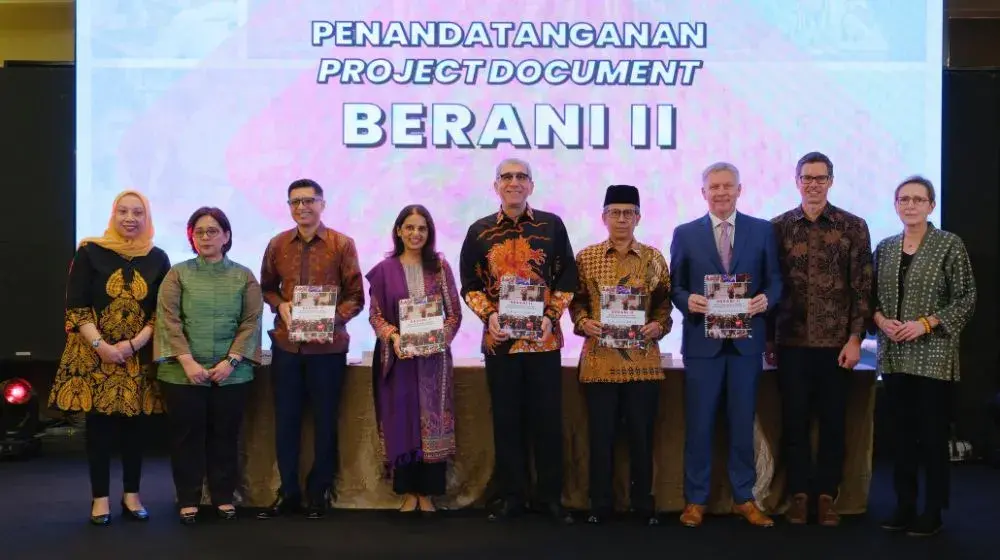Tens of thousands of pregnant women are among the 320,000 people uprooted by two recent eruptions of Mount Merapi in Central Java, Indonesia. To protect their health, UNFPA, the United Nations Population Fund, has provided medical supplies to four affected districts and is giving technical assistance in delivering reproductive health services.
After the first eruption on 26 October, UNFPA was part of a joint United Nations team that helped officials in the four districts assess reproductive health needs. The Fund then shipped 3,000 hygiene kits for displaced individuals, and sent midwifery supplies and medical equipment to local health centres offering basic emergency obstetric and neonatal care.
The support continued after the second, larger eruption on 5 November.
UNFPA is also helping the health offices in the four districts (Boyolali, Klaten, Magelang and Sleman) to strengthen maternal surveillance to ensure skilled care during births and prompt management of pregnancy and childbirth complications.
In addition, UNFPA is assisting in the prevention of HIV transmission, and is training Women Empowerment Offices and other local government units to address gender-related concerns as part of the disaster response.
“Vulnerability to sexual and gender-based violence tend to increase during emergencies, so this is an area that UNFPA is also addressing,” said Jose Ferraris, UNFPA Representative in Indonesia.
To help prevent sexual violence and manage its consequences, the Fund is working with the Indonesian National Police to increase the roles of female officers in addressing violence, and will collaborate with local NGOs to raise awareness on sexual violence in camps for the displaced.
For further information, please contact Nugroho Nurdikiawan Sunjoyo, UNFPA Communications Officer at +62 8121068341 or sunjoyo@unfpa.org.
Tags: Humanitarian, Reproductive Health




